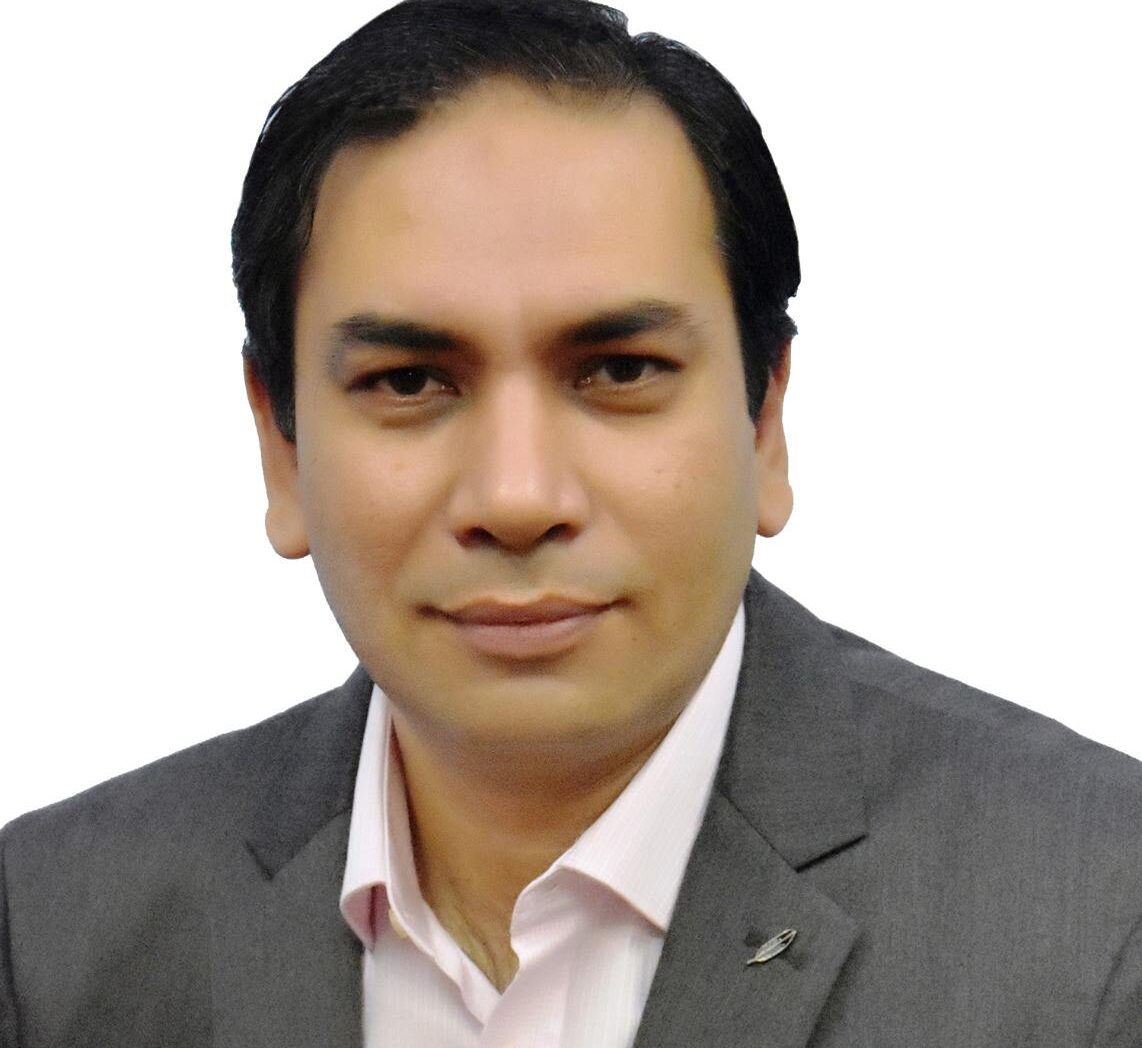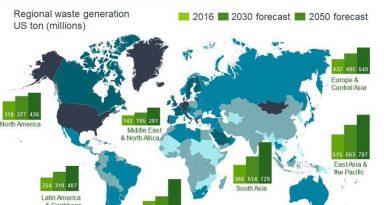A Business Case For Plastic Fibre Will Make Govt Or Social Push Redundant For Plastic Recycling-Sachin Sharma, GEM Enviro Management

1. GEM has grown tremendously in the past one decade. Tell us about your journey so far – the challenges & navigation.
Sachin Sharma: We started GEM Enviro Management in 2013-14 with collection of plastic wastes from organizations like Coca-Cola, PepsiCo, Bisleri etc. The awareness for proper plastic disposal was very low then. Most of the companies were selling their plastic waste to junk dealers or kabadiwalas. We introduced the concept of their waste going properly to the recycling chain. We started collecting waste from these organisations ensuring that it goes to the recycling chain. Gradually we began to collect waste from the post-consumer part namely, collection centers, rag-pickers, scrap dealers etc. In 2017-18 we launched reverse vending machines (RVM). We now have 50 RVMs in India at locations including Delhi, Gurgaon, Mumbai, Calcutta and Ahmedabad. The idea was to have a proper plastic waste collection directly from the source. From 2018-19 we have been working with companies to help in their extended producer responsibilities (EPR). Today we are working with major firms of other segments like JK Lakshmi Cement, RIPCO, Chambal Fertilizers etc. We also help them to register with CPCB. Our journey has been really good in the sense that we have created a lot of awareness towards proper disposal of waste as well as their recycling. Over the years, GEM has collected and recycled more than a million tonnes of plastic waste.
2. What sets GEM apart from its competitors? What distinguishes your uniqueness/USP?
Sachin Sharma: In addition to collection and recycling of waste, we also conduct a lot of awareness programs targeted towards students, children and the general public. The objective is to make people aware about proper disposal of plastic waste and its recycling. Littering stops with awareness and that can help settle the problem of waste in India. GEM is working into the complete value chain. We collect, we help in recycling and we do marketing & selling of recycled merchandise like T-shirts, backpacks etc. that are made up of recycled fiber. Our stronghold on the entire value chain differentiates us from competitors.

3. The “Recycled Merchandise” that you do looks interesting. How is this helping in driving the circular economy?
Sachin Sharma: The ‘Recycled Merchandise’ includes products like T-shirts, backpacks, jackets etc. that are made from recycled polyester fiber which is an output of the spinning of pet bottles. Pet bottles are the ones used for containing cold drinks. In terms of quality, these products are almost similar to other polyester fibers. Although their tensile strength and dyeing ability is a little lower, these factors are not that important. Our fiber is used in the majority of textile applications which includes mattresses, bedsheets, pillow covers and so on. It’s sold widely in India at 5-10% discount against normal polyester fiber. We want to transform it into ‘premium fiber’ so that there is more demand and people begin to set up recycling units and collection happens more. Hence, acceptance of recycled polyester fiber will help in arresting the problem of waste directly. A commercial or business chain will do away with the need of governmental or social intervention.
4. You have been working with some of the biggest consumer based companies in India that generate huge chunks of waste like Coca, PepsiCo, Amazon, Nivea, Flipkart etc. How do you exactly help them?
Sachin Sharma: Now the companies are more aware of proper disposal of their waste materials and adherence to ESG guidelines. This was not the case 10 years ago. Now there is visible improvement on their part. We help the companies in multiple ways. We help in the collection of their waste and sending it for recycling as per set environmental norms. We help them fulfill their EPR obligations that were introduced in 2016 by the Union Environment Ministry.
5. How willing are these companies to recycle their waste? Are they serious enough in their efforts?
Sachin Sharma: Due to the government notification of 2016, then in 2022 and the EPR guidelines, these companies are now aggressively working on their ESG goals. Most organizations are now properly disposing-off their plastic waste.
6. We hear a lot about “Plastic Credits” these days. Can you please elaborate on this?
Sachin Sharma: Plastic Credit is a new concept that has come into being a couple of years ago only. Verra, based out of the USA, has created guidelines for plastic credits. The guidelines say that one tonne of plastic waste collected & recycled would be equivalent to one plastic credit. Audits of projects are carried out and once it is approved, the project can issue plastic credits which could be sold to buyers. Presently, this is a voluntary market and not many transactions have happened yet. Then people become more aware about this concept and companies are sensitive to ESG compliances, plastic credits will pick up.

7. What is the geographical extent of your operations?
Sachin Sharma: We work in almost every state of India. We are yet to have operations overseas.
8. You also offer ESG Audit and Advisory services. How is this helping industries become more sustainable and environment friendly?
Sachin Sharma: Recently, we have launched “Hill Waste Audit” where we audit & certify organisations that collect waste from hilly areas. Presently, most of the waste is collected from areas like plains. Difficult areas like oceans and hills are ecologically sensitive and a lot of effort is required to collect waste. Therefore, to incentivize the waste collection in the hills, we are certifying organisations that collect waste in such difficult terrains. These organisations would definitely benefit through higher realization of their products if they are certified from us. We also work with organizations for Business Reporting Requirement (BSR) – which comes under SEBI’s mandate. We help companies with ESG compliances and help improve their ESG scores.
9. How do you evaluate the present policy support and what suggestions you make to the government to help the sector?
Sachin Sharma: From 2016 onwards, the government has become serious about waste management. The Swachh Bharat Abhiyan was launched and EPR also came into effect. The guidelines have broadened from plastics to electronic wastes to tyres and others. The government is coming up with new directives to make the polluters pay. The EPR is based on the “polluter pays principle.” I believe that the next government will continue the momentum and incentives for waste collectors & recyclers will also come up. Green Credits have been recently introduced.
10. Your organization is quite a success today. Tell us something about your team at GEM Enviro?
Sachin Sharma: Presently we have about 50 members in the team. I’m pleased to inform you that many of the members have been with us since 2013-14 when the company was established and it’s passionate about working in this sector. As a team, we continue to grow.
11. Tell us something about your revenue estimates and future plans.
Sachin Sharma: We will keep on working in the avenues of waste management and recycling. We are expecting to grow at 20-30% CAGR every year for the next 3-5 years. We would continue to work not just on the plastic waste, but also e-waste, battery waste & plastic credits in a more aggressive way.
12. You are a product of IIM – Calcutta and yet you decided to chase waste. What was your motivation and what have you derived from this sector?
Sachin Sharma: The most satisfying thing is that my team and I have generated a ‘business model’ out of the looming problem of waste in India. We are trying to address the challenge in our own way. I’m pleased to tell you that we have collected more than a million tonnes of waste in the past 10 years. We have organised hundreds of awareness programmes among the masses. This gives us immense satisfaction.




